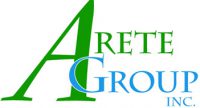For Candidates
Aretegroupinc.com is not a public job board
It’s a secure database. Your resume is viewed by professional career consultants who understand the importance of privacy when making a career move. Rest assured that only authorized Arete Group search consultants have access to this database.

One-on-One With Arete Group
Making a career change is more than just a financial decision. It’s the result of a myriad of personal issues affecting your whole life. That’s why our search consultants spend time getting to know you, your needs and your goals. As you develop a relationship with Arete Group consultants, you’ll gain confidence in our ability to represent you to potential employers.
- Even if you’re not actively looking for a new opportunity, we welcome you to be part of our network so you can be notified of opportunities that might just spark your interest.
- We will always get your permission before sending your resume to any client; you will have control over where your resume goes.
- We will advise you of the status of each search where your resume has been presented and/or you have interviewed through our firm.
- We are here to help you with your choice and not force a match that does not make sense.
- We will guide, advise and help you through every step of the placement process.
RESUME TIPS
DO
- Be accurate both with the information presented in your resume and the spelling and grammar.
- Present the most recent and most relevant information first, working backwards chronologically; current employment should always appear on page 1.
- Use month and year for dates of employment.
- Describe your accomplishments and achievements, using statistics, numbers, and examples to support them where possible.
- When you list your employers, include descriptive information such as annual revenue and number of employees.
- Present bullet points that concisely describe accomplishments and achievements.
- Be prepared to discuss any breaks in employment.
- Keep your resume to one or two pages at the most.
- Update your resume periodically, even if you aren’t sending it out. That way it will be in better shape when you are ready to start sending it out.
DON’T
- Don’t fabricate or exaggerate – it is estimated that 65% of resumes contain inaccuracies. Don’t let yours be one of them! More companies every day are using verification processes and services to check the accuracy of information submitted by potential new hires.
- Don’t use experience summaries that are so long they push your work history to the second page. Explain your experience within the position itself. Keep the summary statement brief.
Interview Tips
The objective of interviewing is to find out about the company, position, and career path; get all your questions answered so you know whether or not you are interested in continuing in the interview process
Do your homework about the company via the company website, Fortune.com, Hoovers.com, etc. or through personal contacts with friends who work at the company.
Bring fresh copies of your resume with you to the interview.
Possible Questions to Expect:
- Give me an example of a conflict situation you’ve dealt with. How did you resolve it and what was the outcome?
- Tell me about your greatest accomplishment…or disappointment. What did you learn from it?
- What are your career goals? Where do you want to be in 5 years? 10 years?
- The interviewer may also describe a scenario and ask your thought process around resolving an issue or completing a project.
When answering, keep your answers concise; don’t ramble.
Be prepared to talk about motives: where you have been, what you have done, and why you would now consider a job change.
- Never speak negatively about previous employment/employer during an interview; but you may speak freely with our search consultants.
Possible Questions to Ask:
- If I would start this job tomorrow, what would be the most important 1 or 2 priorities on my desk?
- What do you expect a person in this position to accomplish in the first 1, 2, 5 yrs?
- Tell me about career development, both the company’s philosophy, and for this position specifically.
- Ask the interviewer about themselves: Where did you come from? What is your background? What do you like about working here?
- What are the greatest challenges of this position? Company?
- Is Human Resources viewed as a strategic partner in the organization?
- How do you see me fitting into this position, organization, culture?
Do not assume that the interviewer remembers everything from your resume.
Use bridge statements to tie your past experience to your ability to do this job today, for example, “In the past I’ve done …. therefore I am confident I can do…”

Discussing salary
If the interviewer asks: “How much do you need?” try to defer to a more general answer, such as “I understand from the recruiter that we’re in the right ballpark” or “I need more information about the opportunity before I can give a good answer to that.”
Ending the Interview
If you’re interested in the opportunity, say so. Interviewers are drawn to candidates who are enthusiastic about their opportunity, e.g. “I really like what I hear, what happens next?” or “I’m very interested in this opportunity, how do you see me fitting in?”
If you’re not interested in the opportunity, be candid with your search consultant who will back you out gracefully.
Send a thank you note to those with whom you’ve interviewed. Email is an acceptable means to transmit this, so be sure you get business cards or email addresses before you conclude each interview.
Your search consultant will debrief with client and candidate after the interview to determine interest and coordinate next steps.
Other Suggestions
- Always dress professionally; a suit is still best. You have only one chance to make a positive first impression.
- Greet each interviewer with a firm handshake.
- Make lots of eye contact throughout each interview.
- Listen; paraphrase when appropriate to confirm your understanding.
- Prepare your questions in advance about the job, the company, the culture, the people, the future, etc., etc. Anything you need to know to make a decision.
- Take it easy on make-up, cologne, and jewelry.
